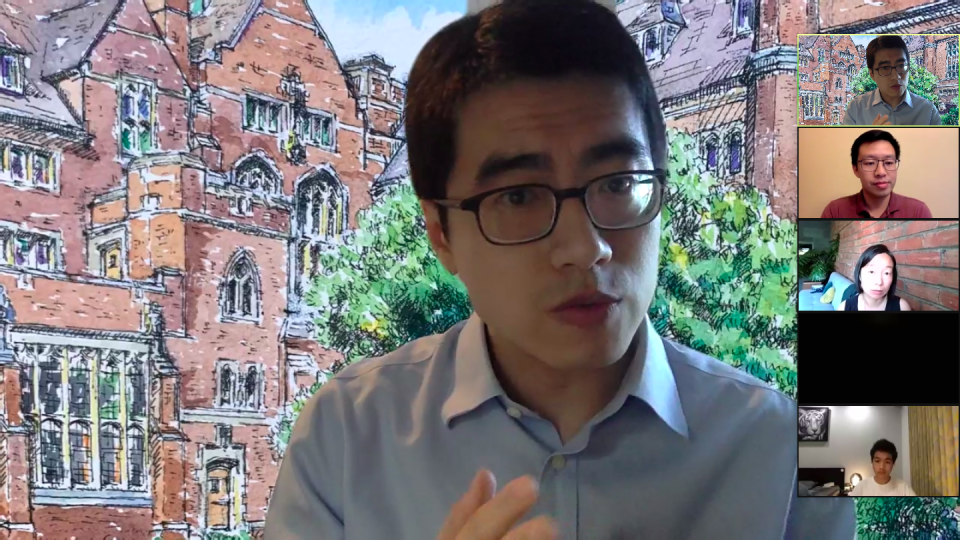
Event Time
June 17, 2021 | Thursday
8:00 am - 9:00 am Eastern Standard Time (EST)
June 17, 2021 | Thursday
8:00 pm - 9:00 pm China Standard Time (CST)
Participation Format

Registration is required to obtain a ZOOM Conference access link, which will be sent to your registration email or phone shortly. Please enter the ZOOM room 15 minutes before the starting time. When the room is full, latecomers will not be able to access the ZOOM conference.
Registration
Participants within China can click “HERE” further below to register. Participants from outside of China can use the following link to register:
https://yalecenterbj.glueup.cn/event/why-was-the-late-imperial-chinese-state-so-weak-32293/
Please send an email to yalecenterbeijing@yale.edu if there are any problems.
Ticket
Free
LANGUAGE
The language of the event will be English.
!Attention
Recording (audiotaping or videotaping) during the event is not allowed.
The Event
This talk is based on a forthcoming book, titled The Ideological Foundations of the Qing Fiscal State. The book explains why state fiscal capacity in late imperial China was unusually weak—a mere fraction of what its main Eurasian competitors could muster, and dramatically weaker than what it was in earlier Chinese dynasties. It argues for an ideological explanation: following the highly idiosyncratic circumstances of Ming collapse, Qing elites adopted a unique ideological worldview that made raising taxes on agriculture politically impossible for over two centuries, even though the economy was more than strong enough to sustain major tax hikes. Taisu Zhang, Professor of Law at Yale Law School, will share his insights on June 17, followed by a Q&A session in both English and Chinese.
The Speaker
Taisu Zhang
Professor of Law, Yale Law School
Taisu Zhang is a Professor of Law at Yale Law School and works on comparative legal and economic history, private law theory, and contemporary Chinese law and politics. His first book, The Laws and Economics of Confucianism: Kinship and Property in Pre-Industrial China and England, was published by Cambridge University Press, and received the 2018 Presidents Award from the Social Science History Association and the 2018 Gaddis Smith Book Prize from the MacMillan Center for International and Area Studies. This is the first entry in a planned trilogy of books on the institutional and cultural origins of early modern economic divergence. The second entry, The Ideological Foundations of the Qing Fiscal State, is under contract with Cambridge University Press. In addition, Zhang has published articles, essays, and book chapters on a wide array of topics, winning awards from several academic organizations, and is a regular commentator on Chinese law, society, and politics in media outlets.
Professor Zhang holds three degrees from Yale: a B.A. in History and Mathematics, a J.D., and a Ph.D. in History. He has also taught at the Duke University School of Law, the University of Hong Kong, Brown University, and the Tsinghua University School of Law. He holds a secondary appointment at Yale as Professor of History.
Greenberg Distinguished Colloquium

Thanks to the generosity of Mr. Maurice R. Greenberg, Chairman and CEO of C.V. Starr & Co. Inc. the Yale Center Beijing is pleased to host the Greenberg Distinguished Colloquium, which will convene thought leaders from all sectors who, in the spirit of Mr. Greenberg, play pivotal roles in building bridges among China, the U.S., and the rest of the world.
Mr. Greenberg has been a member of Yale Center Beijing’s Executive Council and retired as the Chairman and CEO of American International Group (AIG). In 2018, he was awarded the China Reform Friendship Medal.
Public Event
